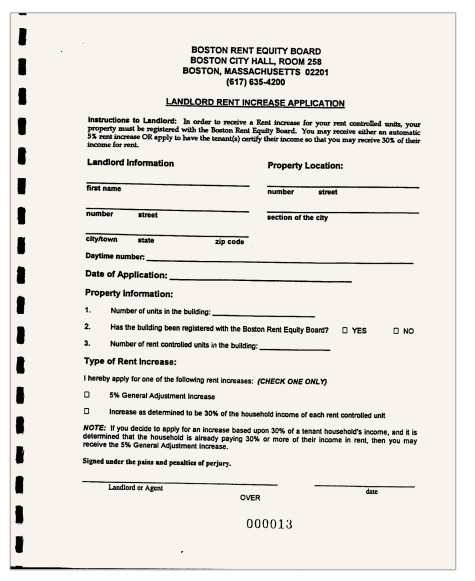
Rental property owners were beholden to rent boards.
Rent control boards’ authority began with a mandatory registration for all rent-controlled properties.
Property owners paid a fee to register.
Once registered, landlords could apply to the rent control board for permission to increase rent.
Without permission, no increase was allowed, not even for basic repairs and upkeep.
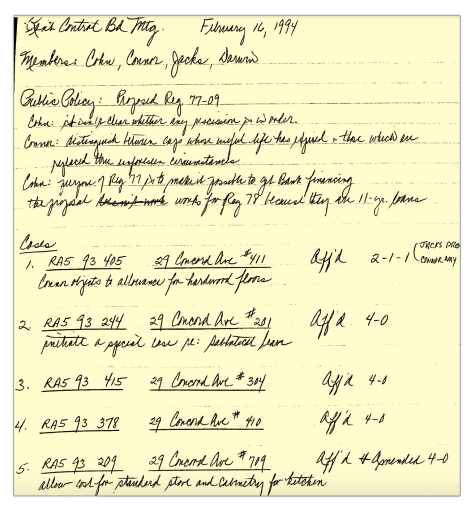
Rent boards denied scores of repair requests at every meeting.
Rent control boards’ agendas consisted largely of approving or denying landlords’ requests to make repairs.
Thousands of pages of Cambridge Rent Control Board minutes show landlords asking to replace appliances, install water heaters and upgrade kitchens.
This sample shows members’ notes.
“Committee objects to allowance for hardwood floors.”
“Allow cost for standard stove and cabinetry for kitchen.”
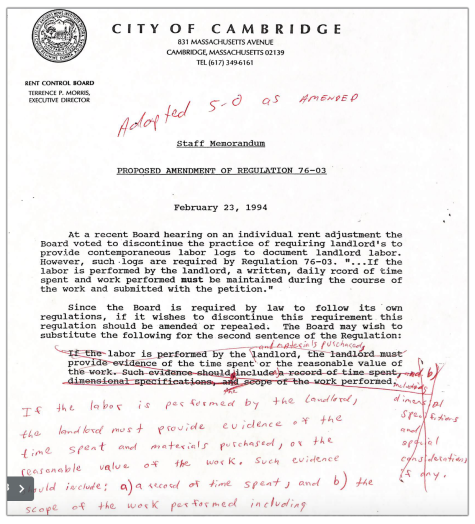
Repairs and improvements had to be detailed down to the minute.
Under rent control, landlords were required to submit onerously detailed records of time spent performing repairs on their rentals.
Landlords also had to prove that the materials they purchased were as cheap as possible.
Without detailed proof, requests for rent increases would be denied.
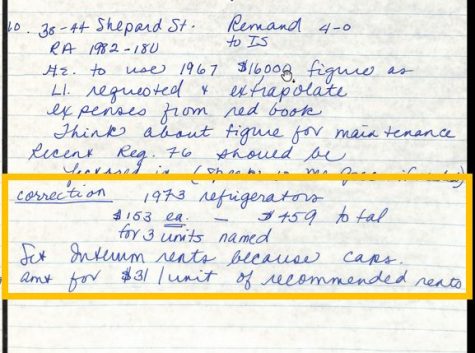
The most common decision was no decision.
On March 2, 1983, the landlord at 38 – 44 Shepard Street, Cambridge, asked the rent control board for permission to replace 10-year-old refrigerators.
The board didn’t decide “yes” or “no.”
The decision was “remand 4-0.”
This means they were going to wait for inspectional services to see the refrigerators for themselves.
Each delay worsened conditions.
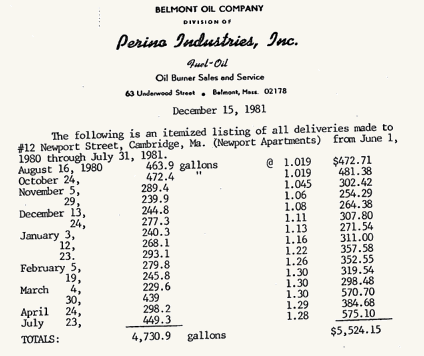
Rent board decisions worsened climate change.
Because landlords could not charge renters the true cost of oil or gas, renters burned more than they needed.
The rent board allowance for 12 Newport Road was 1,038 gallons of oil per year set in 1979.
By 1983, the renters were burning 4,730 gallons per year.
On March 16, 1983, the landlord tried again to obtain a rent increase to charge renters more for oil.
The rent board examined each monthly bill, as well as the bills for all the properties the landlord owned.
They examined heating bills for 1 – 8 Newport Rd, 1775 – 1783 Massachusetts Avenue and 9 and 11 Forest Street.
The delay of four years caused an extra 12,000 gallons of oil to be burned.
This one delay caused emissions of 122 tons of CO2.
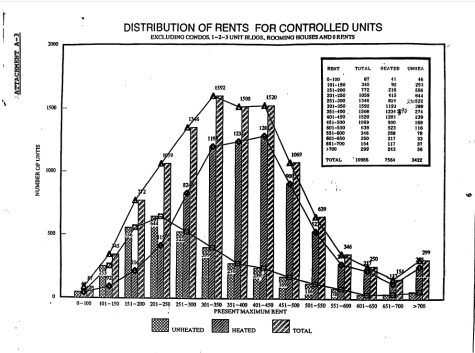
City-funded studies showed rent control didn't work as expected.
Part of the high cost of rent control administration included paying for multiple studies to determine the policy’s effects.
Most of these studies concluded that rent control policy did not help its targeted populations.
The Green Ribbon Committee were asked in December 1989 to find out whether “controlled rents for some of these properties were sufficient for their upkeep.”
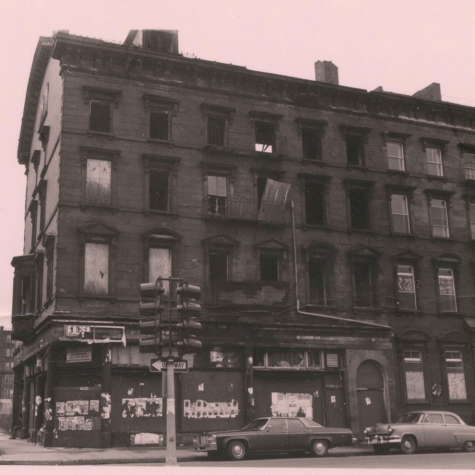
Rent control boards contributed to urban blight.
Policies interpreted and applied by rent control boards in Boston discouraged development of new buildings, improvement of existing buildings and basic upkeep of rental units.
The result was too often scenes like this, in Southie.